Introduction
Have you ever wondered if your fluffy, hoppy companion recognizes you as their owner?
Many rabbit owners, including myself, have pondered this fascinating question. After all, rabbits are known for their adorable faces and unique personalities.
we’re diving deep into the world of rabbit cognition and exploring whether rabbits can form emotional bonds, identify specific owners, and remember them even after extended periods of separation. We’ll be uncovering the latest research, examining key factors that influence their recognition abilities, and sharing practical tips on how you can strengthen your bond with your furry friend.
Get ready to discover the fascinating world of rabbit recognition and explore the amazing connections we can forge with these fluffy companions. Whether you’re a seasoned rabbit owner or considering getting a bunny buddy, this article is packed with insights and tips that will deepen your understanding and strengthen your bond with these lovable creatures.
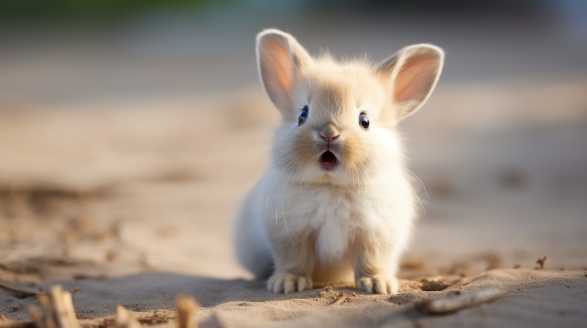
Key Takeaways
- Rabbits can recognize and remember their owners after extended periods of separation, especially if there is a strong bond and positive emotional connection.
- Factors such as bonding, length of separation, environmental changes, and emotional connections influence a rabbit’s ability to remember their owner.
- Signs that indicate recognition include excitement, vocalizations, eye contact, nudges, behavioral changes, and slow recognition.
- To strengthen the bond after separation, be patient, use treats and positive reinforcement, spend quality time together, maintain consistency and routine, and provide enrichment.
- Rabbits can learn to identify and respond to specific owners through visual, vocal, and scent cues.
- The ability to recognize multiple owners can vary depending on the frequency of interaction, individual rabbit personality, specific cues and associations, and consistency of interaction.
- Rabbits can recognize their owners’ voices and respond to intonations and familiar sounds.
- Trust and bonding are crucial in a rabbit’s ability to recognize their owner, creating a sense of relaxation, reduced stress and fear, and openness to bonding.
- Nurturing the bond involves creating a safe environment, consistent care and routine, positive reinforcement, regular gentle handling, and spending quality time together.
- Factors that influence a rabbit’s ability to recognize their owner include visual cues, scent, vocal cues, actions and behavior, and time and consistency.
- Building a strong bond and consistently interacting with your rabbit will increase their ability to recognize you as their owner.
Do Rabbits Remember Their Owners after Extended Separation?
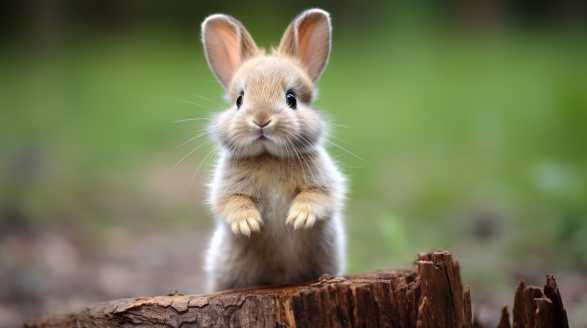
I have often wondered if my pet rabbit, Fluffy, would still remember me after a long period of separation. It’s a question that many rabbit owners may ponder when faced with the prospect of extended time away from their furry friends.
Let’s dive into the fascinating world of rabbit memory and find out if they truly remember their owners after extended separation.
Understanding Rabbit Memory
Rabbits are intelligent animals with a remarkable memory capacity. They have the ability to remember people, places, and even specific events.
Factors Influencing Rabbit Memory
Several factors can influence a rabbit’s ability to remember its owner after a prolonged separation. These factors include:
1. Bonding
Rabbits, like many other animals, form strong emotional bonds with their owners. If you have spent a considerable amount of time bonding and forming a relationship with your pet rabbit, chances are they will remember you even after extended separation.
2. Length of Separation
The duration of separation plays a significant role in whether a rabbit will remember its owner. Short separations, such as a week-long vacation, may be easier for rabbits to handle and remember their owners upon their return.
3. Environmental Change
Rabbits are creatures of habit and thrive in familiar environments. If the rabbit’s surroundings have drastically changed during the separation, it may affect their ability to remember their owner.
4. Emotional Connection
The emotional connection between a rabbit and its owner is crucial in determining the likelihood of remembering after extended separation. If the rabbit has experienced love, care, and positive interactions with their owner, they are more likely to remember them, regardless of the length of separation.
Signs That Your Rabbit Remembers You
Although we cannot read a rabbit’s mind, there are certain signs that indicate they recognize their owners even after extended separation. These signs include:
1. Excitement and Joy
When you return after a long absence, your rabbit may exhibit signs of excitement and joy. It could manifest as binkying (joyful hopping and twisting in the air), running towards you, or displaying other playful behaviors.
2. Vocalization
Rabbits may make distinct sounds, such as purring or honking, to express their happiness when they see their beloved owners returning. These vocalizations are often a clear sign that they recognize and remember you.
3. Eye Contact and Nudges
If your rabbit maintains eye contact with you and gently nuzzles your hand or face upon your return, it’s a strong indication that they remember their bond with you. They may also nudge you as a way of reaffirming their connection.
4. Behavioral Changes
Rabbits that remember their owners may exhibit changes in their behavior after a reunion. They may become more relaxed and affectionate, seeking more physical contact, and spending increased bonding time with their owner.
5. Indifference or Slow Recognition
Not all rabbits will display overt signs of recognition. Some may take time to warm up and gradually remember their owners after a long separation.
Tips to Reestablish Bonds with Your Rabbit
If you’ve been separated from your rabbit for an extended period and want to strengthen your bond upon your reunion, consider the following tips:
1. Patience and Understanding
Give your rabbit time to adjust and reacquaint themselves with you. Respect their boundaries and don’t rush the bonding process.
2. Treats and Positive Reinforcement
Use favorite treats and positive reinforcement to create positive associations between you and your rabbit. Offering treats during interaction can help strengthen the bond and trigger positive memories.
3. Spend Quality Time Together
Devote quality time to your rabbit by engaging in activities they enjoy, such as gentle petting, grooming, or playing with their favorite toys. This will help rebuild trust and reinforce the bond between you.
4. Consistency and Routine
Establishing a consistent routine can help your rabbit feel secure. Stick to a regular feeding schedule and create a calm, comforting environment for them.
5. Provide Enrichment
Enriching your rabbit’s environment with toys, tunnels, and mental stimulation can make them feel happier and more engaged. It also provides opportunities for shared activities and bonding experiences between you and your pet.
While there is no definitive answer to whether rabbits remember their owners after extended separation, evidence suggests that they can remember people who played significant roles in their lives. Factors such as bonding, length of separation, environmental changes, and emotional connections influence a rabbit’s ability to recall its owner.
Remember, each rabbit is unique, so be patient and understanding as you reestablish your connection with your furry friend.
Can Rabbits Learn to Identify and Respond to Specific Owners?
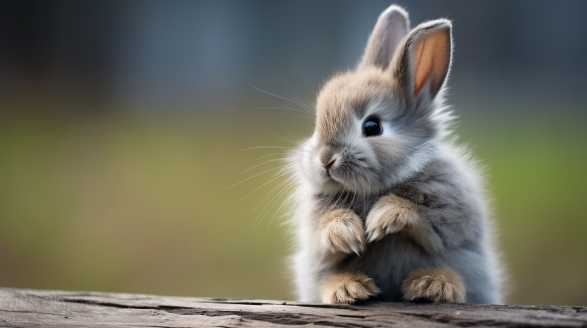
As a proud rabbit owner, I often find myself wondering if my fluffy friend can truly recognize me and respond to my presence. It’s a question that has intrigued me for quite some time.
Understanding Rabbit Behavior
Before delving into the question of whether rabbits can identify and respond to their specific owners, it’s important to grasp some fundamental aspects of rabbit behavior. These adorable creatures are social animals, albeit with a unique twist compared to more traditional companion animals like dogs or cats.
Social Structure
Rabbits have a hierarchical social structure. In the wild, they live in groups led by a dominant individual who assumes the role of the alpha.
Bonding with Humans
When we bring rabbits into our homes, they quickly form bonds with their human companions. Rabbits are intelligent creatures capable of recognizing individuals who provide them with care, affection, and safety.
Signs of Recognition
Rabbits might not wag their tails or purr like other pets, but they do exhibit certain behaviors that indicate recognition of specific owners. Here are some signs to look out for:
1. Increased Comfort Level
An early indicator that your rabbit recognizes you is its comfort level around you. When a rabbit trusts and recognizes its owner, it tends to feel more at ease in their presence.
2. Unique Greetings
Just like humans, rabbits have their own unique ways of saying hello. Pay attention to your rabbit’s greetings when you approach its enclosure.
3. Positive Associations
Rabbits are highly food-motivated creatures. If your rabbit associates you with positive experiences like treats, playtime, or gentle petting, it’s a strong indication that it recognizes and responds to you as its owner.
4. Vocalizations and Body Language
While rabbits are generally not known for their vocalizations, they do communicate through a range of body language cues. Flattening their ears or lunging forward is often a display of discomfort or fear.
Building a Strong Bond
Now that we have established that rabbits can indeed identify and respond to specific owners, let’s explore how we can strengthen the bond with our fluffy companions. Building a strong bond fosters trust and enhances the rabbit’s recognition and response to their owner.
1. Spend Quality Time Together
Dedicate regular quality time for bonding activities with your rabbit. This can include gentle petting, grooming, or even engaging in interactive play.
2. Establish Rituals
Rabbits thrive on routine and predictability. Establishing daily rituals with your rabbit, such as feeding or playtime at specific times, helps them feel secure and facilitates their recognition of you as their owner.
3. Use Positive Reinforcement
Positive reinforcement plays a crucial role in training and bonding with rabbits. Reward good behavior with treats, verbal praise, or even a favorite toy.
4. Respect Boundaries
While building a strong bond is important, it’s equally necessary to respect your rabbit’s boundaries. Pay attention to cues that indicate discomfort or fear, and give your rabbit space when needed.
So, can rabbits learn to identify and respond to specific owners? The answer is a resounding yes.
By understanding their behavior, recognizing signs of recognition, and nurturing a strong bond, you can further enhance this unique and heartwarming connection with your furry companion.
Remember, each rabbit is different, and the extent to which they recognize and respond to their owner may vary. Embrace the journey of building trust, patience, and love as you uncover the depths of your rabbit’s recognition and response to you as their cherished owner.
Can Rabbits Distinguish between Multiple Owners?
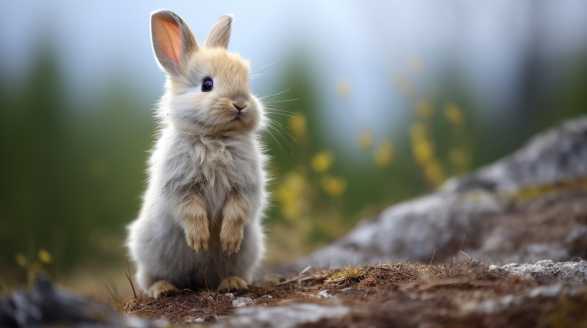
As an avid pet rabbit enthusiast and owner of multiple rabbits myself, I have often wondered if our fluffy companions are capable of recognizing and distinguishing between us, their human caregivers. Can rabbits truly perceive the unique traits and qualities of different individuals?
I will look into this curious topic, exploring the fascinating world of rabbit cognition and their ability to discern between the various individuals in their lives.
Understanding Rabbit Cognition
Before we dive into the specific question at hand, it is crucial to understand the general cognitive abilities of rabbits. While rabbits may not possess the same level of complex cognitive processing as humans, they do possess certain cognitive skills, particularly related to recognition and memory.
Rabbits have an excellent capacity to recognize familiar objects, scents, and individuals. They possess a keen sense of smell and can detect unique scents associated with their owners.
These abilities lay the foundation for their potential to distinguish between multiple owners.
Rabbit Recognition of Familiar Faces
One of the most remarkable aspects of rabbit cognition is their ability to recognize familiar faces. Rabbits have been shown to recognize their human caregivers by sight alone.
However, it is important to note that rabbits’ recognition of familiar faces might vary on an individual basis. Each rabbit has its own unique personality, and some may be more inclined to recognize and differentiate between multiple owners than others.
Factors Influencing Rabbits’ Ability to Distinguish Owners
While rabbits possess the potential to distinguish between multiple owners, several factors can influence their ability to do so:
1. Frequency of Interaction
Regular and frequent interaction with individual owners positively impacts a rabbit’s ability to distinguish between them. Spending quality time with your rabbit, engaging in play, and providing consistent care will strengthen the bond and familiarity with each owner.
2. Individual Rabbit Personality
As mentioned earlier, each rabbit has its own personality. Some rabbits may naturally be more perceptive and attuned to recognizing and distinguishing between multiple owners, while others may have a less developed ability in this regard.
3. Specific Cues and Associations
Rabbits are quick learners and can associate specific cues or actions with particular individuals. For instance, if one owner feeds the rabbit and another owner is responsible for grooming or exercise, the rabbit may associate each owner with these activities.
4. Consistency of Interaction
Consistency in how owners interact with the rabbit is crucial. Using consistent verbal cues, maintaining similar body language, and following established routines will aid in the rabbit’s recognition and understanding of each individual.
Building a Strong Connection with Your Rabbit
While rabbits may have the potential to distinguish between multiple owners, it is important to note that their basic needs and care should always be the primary focus of any rabbit-owner relationship. Here are some tips for building a strong connection with your rabbit:
1. Spend Quality Time Together
Engage in activities that your rabbit enjoys, such as gentle petting, grooming, or interactive play. Spending quality time will not only strengthen your bond but also enhance the rabbit’s recognition of you as its caregiver.
2. Use Positive Reinforcement
Rabbits respond well to positive reinforcement, so reward your rabbit with tasty treats and gentle praise when they exhibit desired behaviors. This will help reinforce their recognition of you as a source of positive experiences.
3. Establish Familiar Routines
Rabbits thrive on routine and predictability. Establish consistent schedules for feeding, exercise, and playtime.
4. Provide Enrichment and Stimulation
Ensure your rabbit’s living environment is enriched with toys, hiding spots, and mentally stimulating activities. A happy and stimulated rabbit will be more inclined to establish stronger connections and recognition.
While rabbits may not possess the same level of cognitive abilities as humans, they do possess unique skills that allow them to recognize and distinguish between multiple owners. Factors such as frequency of interaction, individual rabbit personality, specific cues, and consistency of interaction all contribute to a rabbit’s ability to discern and remember different individuals.
As a responsible rabbit owner, it is important to focus on building a strong and caring bond with your rabbit rather than solely seeking recognition. By providing consistent care, spending quality time together, and establishing familiar routines, you can create a loving and trusting relationship with your fluffy companion, regardless of their ability to distinguish between multiple owners.
Can Rabbits Recognize Their Owners’ Voices?
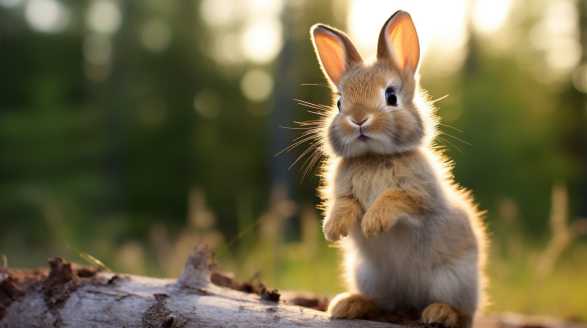
As a proud owner of a fluffy and adorable pet rabbit, I often find myself wondering about their cognitive abilities and just how much they understand. One question that has consistently crossed my mind is whether rabbits have the capability to recognize their owners’ voices.
Understanding the Rabbit’s Perception
Before delving into the intricacies of whether rabbits can recognize their owners’ voices, it is essential to understand how rabbits perceive the world around them. Rabbits have an extraordinary sense of hearing and rely heavily on this sense to detect predators and communicate within their social groups.
The average human voice ranges from 85 to 255 Hz (Hertz), while rabbits can hear sounds up to 49,000 Hz. This remarkable hearing ability allows them to detect high-pitched sounds that are completely imperceptible to us.
Familiarity and Voice Recognition
Rabbits, like many other animals, naturally develop strong bonds with their owners through regular interactions and positive experiences. While they may not understand our complex language, they are more than capable of recognizing distinct patterns, including the unique sounds of our voices.
1. Tone of Voice
Rabbits are highly perceptive to the tone of voice used when speaking to them. They can differentiate between a cheerful, soothing tone and an angry, loud one.
2. Vocal Inflections
It is fascinating to observe how rabbits respond to vocal inflections, even if they don’t fully comprehend the meaning behind the words. They can pick up on the difference in our intonations, recognizing when we are happy, sad, excited, or angry.
3. Frequency of Interaction
Just like any other relationship, the more time you spend with your rabbit, the stronger your bond will become. Regular interaction and engagement create familiarity and help your rabbit associate your voice with positive experiences.
Signs that Indicate Voice Recognition
While it may not be as obvious as a dog wagging its tail, rabbits do exhibit subtle behaviors that suggest they recognize their owners’ voices. Here are some signs to look out for:
1. Ear Movement and Orientation
When a rabbit recognizes the sound of their owner’s voice, they often exhibit a telltale sign through their ears. An attentive rabbit will perk up and orient their ears towards the direction of the sound.
2. Increased Alertness
If your rabbit has been lazing around but suddenly becomes alert and attentive upon hearing your voice, it could be a clear indication of recognition. This heightened state of alertness means they are actively processing the familiar sound and preparing for any potential interaction with you.
3. Approach and Affectionate Behavior
One of the most heartening signs of voice recognition is when your bunny actively seeks you out or displays affectionate behavior upon hearing your voice. This could involve approaching you, nudging you gently with their head, or even licking you.
Strengthening the Bond through Conversation
Now that we understand rabbits can recognize their owners’ voices, it’s worth considering how we can further strengthen this bond. Engaging in conversation with your rabbit might seem amusing at first, but it has its merits.
1. Reading Aloud
Take advantage of your rabbit’s ability to recognize your voice by reading aloud to them. Whether it’s a book, news article, or your favorite novel, the rhythmic and melodic nature of reading aloud can be soothing for both you and your bunny.
2. Talking While Engaging in Activities
Engage in everyday activities, such as grooming or preparing their meals, while keeping up a constant stream of gentle conversation. This consistent voice interaction, coupled with positive experiences, reinforces the bond between you and your rabbit.
3. Singing or Whispering
As strange as it may sound, singing or whispering softly to your rabbit can be an effective way to develop a stronger connection. In addition to the recognition of your voice, the soothing sounds can provide a sense of comfort and security for your furry friend.
In the realm of human-animal relationships, the ability of rabbits to recognize their owners’ voices is a fascinating aspect. While they may not understand the specifics of our language, their acute sense of hearing allows them to distinguish and respond to the distinct sounds and patterns of our voices.
Through consistent interactions, positive experiences, and their astute perception, rabbits can develop a profound bond with their owners. So, next time you engage in conversation with your fluffy companion, know that they can indeed recognize, understand, and respond to the unique sound of your voice.
Do Rabbits Form Emotional Bonds with Their Owners?
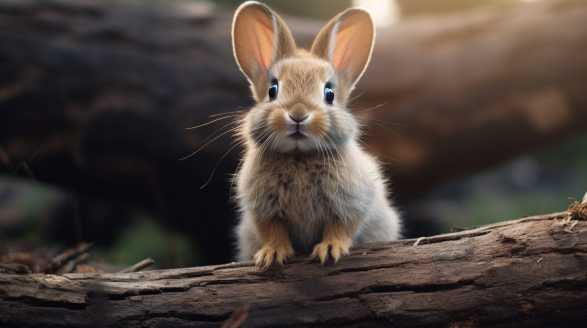
When it comes to pets, rabbits may not be the first animal that comes to mind. Often associated with hopping around, nibbling on carrots, and hiding in burrows, rabbits have a reputation for being more aloof than cuddly.
As a rabbit owner myself, I can’t help but wonder about the depth of connection I share with my furry companion. I will look into this intriguing question, exploring the behaviors and studies surrounding rabbits and their potential emotional bonds.
Behavioural Clues
1. Affectionate Gestures
Rabbits, just like any other pet, have unique ways of showing affection. While they may not wag their tails or shower you with slobbery kisses like dogs, rabbits do display their fondness through various gestures.
Such behaviors indicate that your rabbit feels comfortable and connected to you.
2. Social Interaction
Rabbits are social animals by nature, living in bonded pairs or groups within the wild. As domesticated pets, they can transfer some of their social instincts to their human caretakers.
3. Trust and Vulnerability
Building trust is a vital component of any emotional bond, and rabbits are no exception. If your rabbit willingly approaches you, jumps onto your lap, or allows you to stroke them, this signifies a level of trust that has developed over time.
Scientific Exploration
To further comprehend the emotional capabilities of rabbits, researchers have conducted studies to provide more insight into this intriguing topic. While research on this specific area is limited, some studies shed light on the emotional bonds between rabbits and their owners.
1. Vocalization
Rabbits are generally quiet animals, but research has suggested that they possess various vocalizations indicating different emotional states. A study conducted by Dr. Anne McBride at the University of Southampton found that rabbits produced more vocalizations when their owner was present, suggesting a level of recognition and connection.
2. Stress Response
Studies have also explored how rabbits respond to stress and the presence of their owners. Researchers have found that when rabbits were subjected to a stress-inducing situation, their stress hormone levels decreased when their owner was present.
3. Bonding through Clicker Training
Clicker training, a positive reinforcement method using a clicker device, has been utilized to foster bonds between rabbits and their owners. By rewarding desired behaviors with treats and using clicker cues, rabbits learn to associate their owner’s presence with positive experiences.
Nurturing the Bond
Now that we have established that rabbits are capable of forming emotional bonds, it is important to understand how to nurture and strengthen these connections with our furry friends. Here are some tips to enhance the bond between you and your rabbit:
1. Spend Quality Time Together
Make a conscious effort to spend uninterrupted quality time with your rabbit every day. Create a safe and comfortable environment where you can interact, play, and simply be present with your furry companion.
2. Provide Mental Stimulation
Rabbits are intelligent creatures and need mental stimulation to thrive. Incorporate activities that challenge your rabbit’s mind, such as puzzle toys, treat-dispensing games, or clicker training sessions.
3. Respect Their Boundaries
Just like humans, rabbits have their own personalities and preferences. Respecting their boundaries and acknowledging their need for personal space is essential.
4. Slow and Steady Approach
Building an emotional bond takes time, especially with more reserved rabbits. Start by building trust through gentle interactions, offering treats, and allowing them to approach you on their terms.
5. Seek Professional Guidance
If you are struggling to bond with your rabbit or encountering behavioral issues, consider consulting a veterinarian or a qualified animal behaviorist. These professionals can provide valuable insights and advice tailored to your specific circumstances, ensuring the bond between you and your rabbit flourishes.
Rabbits are indeed capable of forming emotional bonds with their owners. Through affectionate gestures, social interactions, and displays of trust, rabbits demonstrate their capacity for attachment.
By investing time, attention, and understanding, you can nurture and strengthen the bond between you and your bunny, leading to a rewarding and enriching relationship for both of you.
The Science Behind Whether Rabbits Recognize Their Owners
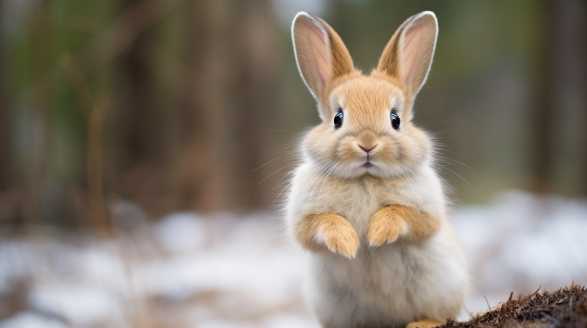
Rabbits are undeniably one of the most adorable and popular pets around the world. With their twitching noses and fluffy tails, it’s hard not to fall in love with these furry creatures.
we will look into the scientific research that sheds light on whether rabbits have the ability to recognize and remember their human caregivers.
Anecdotal Evidence: The Bunny Stories
Before we dive into the scientific aspect, let’s explore some anecdotal evidence shared by proud rabbit owners. Many people claim that their rabbits do recognize them and exhibit various forms of behavior to demonstrate this recognition.
- Licking: Some rabbit owners report that their bunnies show affection by licking their hands or faces. This behavior is often interpreted as a sign of recognition.
- Greeting rituals: Certain rabbits have special greeting rituals for their owners, such as nudging or touching noses. This regular behavior indicates familiarity and recognition.
- Playing favorites: Rabbits may display favoritism by seeking more interaction and cuddles from their primary caregiver, suggesting recognition and attachment.
The Bonding Process: Building Trust and Recognition
To understand whether rabbits recognize their owners, it’s vital to recognize the bonding process that occurs between humans and these furry companions. Creating a strong bond right from the start is crucial for your rabbit to feel safe, loved, and secure in your presence.
- Spend quality time: Regularly spend time with your rabbit, talking soothingly to them and engaging in gentle interactions like petting.
- Offer treats: Use treats as positive reinforcement to reward good behavior and teach your rabbit to associate you with positive experiences.
- Respect their personal space: Allow rabbits to approach and interact with you on their own terms. Forcing interaction may lead to distrust and fear.
The Science: Are Rabbits Truly Cognizant of Their Owners?
Although many rabbit owners firmly believe their bunnies recognize them, it’s essential to look at the scientific research surrounding this topic. So, let’s explore what studies have uncovered regarding rabbit cognition and their ability to recognize humans.
A study on the recognition of human faces
A study conducted by Saito and colleagues in 2014 aimed to determine whether rabbits could recognize human faces. The researchers used an experimental setup where rabbits were shown two images side by side: one of their owner and one of a stranger.
Remarkably, the study found that rabbits could be trained to recognize and differentiate between their owner and a stranger. They were able to consistently touch the image of their owner’s face, demonstrating an ability to recognize familiar faces.
Unveiling the Olfactory Sense
Rabbits have an incredibly developed sense of smell, which is a crucial factor in their recognition abilities. They use scent cues to identify individuals, including their owners.
Bunny sniffing:
Have you noticed your bunny sniffing your hand or clothes? This behavior is more than just a curious exploration.
Sniffing is their way of deepening their understanding of someone’s scent, including yours!
Scent-based recognition:
Research suggests that rabbits can distinguish smells from different individuals. A study conducted by Ron Martínez-Gómez and colleagues found that rabbits exhibited different behaviors depending on the scent of their owners versus the scent of strangers.
Beyond Visual and Olfactory Recognition
The recognition process in rabbits goes beyond visual and olfactory cues, with auditory and associative memory playing integral roles as well.
Auditory recognition:
Rabbits have sensitive ears, able to detect a wide range of sounds. They can associate certain sounds, such as their owner’s voice, with positive experiences.
Associative memory:
Rabbits possess remarkable associative memory, allowing them to connect objects, actions, and individuals with specific experiences. Repetitive positive interactions with their owners strengthen this associative memory, leading to increased recognition over time.
Based on research studies, as well as numerous anecdotes shared by rabbit owners, it is safe to conclude that rabbits do recognize their owners. While the depth of this recognition may vary between individuals, it is clear that rabbits possess the ability to distinguish their owners from strangers.
Through a combination of visual, olfactory, auditory, and associative cues, rabbits form a bond with their human caregivers. Building a strong foundation of trust and spending quality time together are key factors in fostering recognition and reinforcing the human-rabbit bond.
So, the next time your fluffy companion licks your hand or nudges their nose against yours, take comfort in knowing that your rabbit recognizes and appreciates you as their beloved owner.
How Trust and Bonding Impact a Rabbit’s Ability to Recognize Their Owners
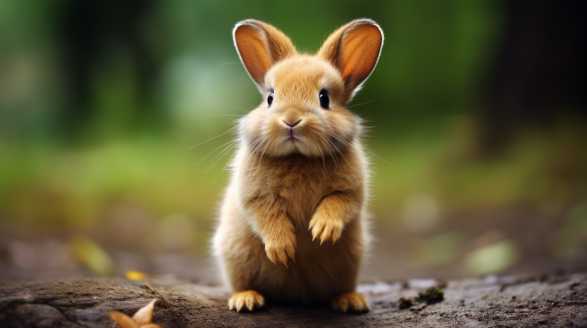
As a proud rabbit owner, I have always been fascinated by the unique bond that can develop between these adorable creatures and their human companions. One question that has always intrigued me is how trust and bonding play a role in a rabbit’s ability to recognize their owners.
Understanding the Nature of Rabbits
Before we dive into the topic at hand, it’s important to understand a few key aspects about rabbits. As prey animals, rabbits tend to be naturally cautious in their behavior, always on the lookout for potential threats.
The Role of Trust in Recognizing Their Owners
Trust is a critical element in any relationship, including the bond between a rabbit and its owner. When a rabbit trusts its owner, it feels safe and secure, which in turn enhances its ability to recognize and interact with its human companion.
- Relaxation and Comfort: When a rabbit feels safe and secure in the presence of its owner, it is more likely to relax and show signs of comfort. This relaxed state allows the rabbit to focus on recognizing and responding to its owner’s familiar scent, voice, and movements.
- Reduced Stress and Fear: When trust is established, a rabbit’s stress levels reduce significantly, and its fear response diminishes. This allows the rabbit to approach its owner with ease and recognize them as a source of safety and care.
- Openness to Bonding: Trust is the foundation for bonding between a rabbit and its owner. Without trust, it becomes challenging for a rabbit to establish a deep bond, hindering its ability to recognize its owner.
Nurturing Trust and Bonding
Building trust and bonding with your rabbit takes time and patience. Here are some practical steps you can take to nurture these essential aspects in your relationship with your furry friend:
- Creating a Safe Environment: Ensure that your rabbit has a comfortable and secure living space, complete with hiding spots, appropriate bedding, and toys. A safe environment helps your rabbit feel secure and fosters trust.
- Consistent Care and Routine: Routinely provide food, water, and a clean living area for your rabbit. Consistency is key to establishing trust and routine helps your rabbit feel secure and develop a sense of familiarity.
- Positive Reinforcement: Reward your rabbit with treats, gentle strokes, and praise when it engages in desirable behavior. Positive reinforcement helps build trust and strengthens the bond between you and your rabbit.
- Regular Gentle Handling: Gradually introduce and familiarize your rabbit with gentle handling, starting with short periods of interaction. It’s important to respect your rabbit’s boundaries and slowly build trust over time.
- Spend Quality Time Together: Devote regular time to interact and bond with your rabbit. Engage in activities such as grooming, playing, or simply sitting in their presence. This quality time cultivates trust and helps your rabbit recognize you as a positive and trusted presence.
Signs of Recognition from Your Rabbit
As you build trust and strengthen the bond with your rabbit, you will notice certain signs indicating that your furry friend recognizes you as their owner. These signs may include:
- Approaching:
- Your rabbit willingly approaches you without signs of fear or hesitation.
- It seeks your company and shows excitement by running towards you.
- Body Language:
- Ear positioning: Forward-facing ears indicate attentiveness and recognition.
- Relaxed posture: A rabbit that trusts you might flop down or stretch out in your presence, showing complete relaxation.
- Purring: Rabbits can express contentment through soft purring or teeth grinding.
- Vocalizations:
- A rabbit may make gentle clicking sounds, honking, or humming noises when it recognizes its owners, which are positive signs of recognition and affection.
The Impact of Trust and Bonding on Rabbits’ Well-being
Establishing trust and building a strong bond with your rabbit goes beyond recognition; it also plays a crucial role in their well-being. A rabbit that recognizes and trusts its owner experiences the following benefits:
- Reduced Stress: Trust reduces the stress levels in rabbits, promoting overall well-being and ensuring they remain calm and content.
- Enhanced Social Interaction: By recognizing their owner, rabbits are more inclined to engage in social interaction, resulting in a happier and more fulfilling life for them.
- Improved Health: Trust and bonding contribute to a rabbit’s overall health by reducing anxiety and promoting a sense of security. This, in turn, can lead to fewer health issues and a longer lifespan.
Trust and bonding play a pivotal role in a rabbit’s ability to recognize their owners. By taking the time to build trust, create a safe environment, and provide consistent care, you can lay the foundation for a deep bond with your rabbit.
So, go ahead and invest in your relationship with your rabbit, and enjoy the incredible connection that can blossom between you.
Factors that Influence a Rabbit’s Ability to Recognize Their Owners
I have always been fascinated by the unique bond that can develop between humans and their pets. Among the various pets one can choose, rabbits have always stood out to me as an intriguing choice.
But have you ever wondered if rabbits can actually recognize their owners? I will explore the factors that influence a rabbit’s ability to recognize their owners and shed light on this interesting topic.
Bonding with a Rabbit – The Key to Recognition
Before we look into the factors that affect a rabbit’s ability to recognize their owners, it is important to highlight the significance of bonding with them. Building a strong bond with your pet rabbit is crucial and serves as the foundation for the recognition process.
1. Visual Cues
Rabbits have excellent eyesight, and visual cues play a significant role in their ability to recognize their owners. Some visual factors that influence recognition include:
- Physical features: Rabbits have the ability to distinguish between different physical characteristics, such as hair color, clothing, and facial features. They can form associations by recognizing these distinctive visual elements.
- Consistency: Regularly exposing your rabbit to your appearance helps them become familiar with your visual cues, reinforcing their recognition abilities.
2. Scent
Rabbits have a keen sense of smell, and scent is highly influential in their recognition process. Here are some factors related to scent that impact a rabbit’s ability to recognize their owner:
- Natural scent: Rabbits have a unique scent that they use to recognize their own kind. Being around your rabbit frequently allows them to become accustomed to your scent, which aids in recognition.
- Familiar scents: Introducing objects with familiar scents, such as blankets or clothing, can further solidify the connection with your rabbit.
Bunny Tip: Expose your rabbit to your natural scent by placing a worn shirt near their living area. This can help strengthen the bond and improve recognition.
3. Vocal Cues
While rabbits may not communicate through the same verbal language as humans, vocal cues still play a role in the recognition process. Rabbits can recognize specific tones and pitches in your voice, which helps them identify you.
- Tone of voice: Consistently using a specific tone of voice when interacting with your rabbit can aid in their recognition. They become attuned to the unique inflections and patterns.
- Names: Rabbits can learn to recognize their own names. By consistently addressing your rabbit with the same name, you can enhance their ability to recognize you as their owner.
4. Actions and Behavior
A rabbit’s recognition of their owner can also be influenced by specific actions and behaviors. Some factors to consider include:
- Feeding time: Rabbits have an exceptional memory when it comes to mealtime. Being the provider of their daily meals creates a positive association and aids in their recognition.
- Playtime: Engaging in playtime activities with your rabbit can significantly contribute to their ability to recognize you. Participating in interactive games strengthens the bond and builds trust.
- Gentle handling: Treating your rabbit with gentleness and respect is crucial for recognition. Avoid sudden movements or actions that may startle or frighten them.
Bunny Tip: Set a regular feeding schedule and create a safe and stimulating play environment to strengthen the bond with your rabbit.
5. Time and Consistency
Building recognition takes time, and being consistent is paramount. Rabbits thrive on routine and familiarity, and these factors greatly affect their ability to recognize their owners.
Bunny Tip: Patience and dedication are key. Spend at least 20-30 minutes daily interacting with your rabbit to establish a strong bond and improve recognition.
While rabbits may not perceive recognition in the same way humans do, they have the ability to form strong bonds with their owners. Factors such as visual cues, scent, vocal cues, actions, behavior, time, and consistency all impact a rabbit’s ability to recognize their owners.
With time and effort, you can build a beautiful bond with your rabbit and enhance their ability to recognize you as their beloved owner.
Conclusion
In conclusion, after diving deep into the world of rabbit recognition, I have discovered that rabbits can indeed recognize and remember their owners. Factors such as bonding, length of separation, environmental changes, and emotional connections influence a rabbit’s ability to recognize their owner.
Building a strong bond and consistently interacting with your rabbit will increase their ability to recognize you as their owner.
It is fascinating to uncover the various ways in which rabbits demonstrate their recognition and connection to their owners. From the joyous binkies and excited greetings to the gentle nudges and eye contact, rabbits have their unique ways of expressing their recognition and love.
Through my research, I have also found that trust and bonding play vital roles in a rabbit’s ability to recognize their owner. By creating a safe environment, providing consistent care and routine, and spending quality time together, we can foster a strong bond and build a foundation of trust with our rabbits.
It is important to note that each rabbit is unique, and their ability to recognize their owner may vary. Some may take longer to warm up and show signs of recognition, while others may be more overt in their display of affection.
So, fellow rabbit enthusiasts, take the time to nurture the bond with your furry companions. Show them love, respect, and consistency, and you will witness the incredible depth of their recognition and connection to you.
Frequently Asked Questions
Do rabbits recognize their owners?
- Q: Can rabbits recognize their owners?
A: Yes, rabbits have the ability to recognize their owners. They can distinguish between different people based on their scent, voice, and appearance.
- Q: How do rabbits recognize their owners?
A: Rabbits primarily recognize their owners through a combination of scent, voice, and appearance. They have a keen sense of smell, can recognize familiar scents, and associate their owners with positive experiences.
- Q: How long does it take for a rabbit to recognize their owner?
A: The time it takes for a rabbit to recognize its owner can vary. Some rabbits may recognize their owners within a few days, while others may take a few weeks or even longer.
- Q: Can rabbits bond with their owners?
A: Yes, rabbits have the ability to form strong bonds with their owners. With time, patience, and regular interactions, rabbits can develop a trusting and affectionate relationship with their owners.
- Q: What behaviors indicate that a rabbit recognizes its owner?
A: When a rabbit recognizes its owner, it may display certain behaviors such as approaching the owner, nuzzling, purring, or licking. They may also show signs of excitement or happiness, such as hopping or binkying.
- Q: Can rabbits recognize their owners after a long absence?
A: Generally, rabbits have a good memory and can recognize their owners even after a long absence. However, it’s important to remember that each rabbit is unique, and some may take a little time to re-establish familiarity and trust.
- Q: Can rabbits recognize their owners by their voice?
- A: Yes, rabbits can recognize their owners by their voice. They have excellent hearing and can differentiate between familiar voices. Talking to your rabbit regularly can help strengthen their recognition and bond with you.
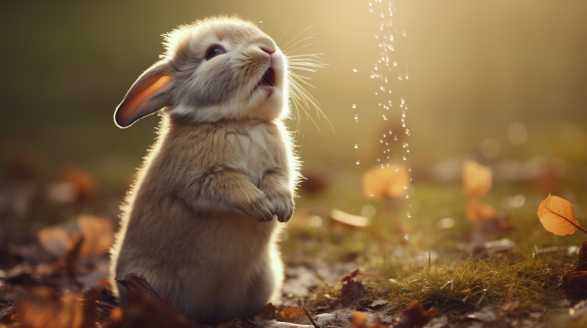
Can Rabbits Get Sick
Introduction Hey there, rabbit owners and enthusiasts! Are you ready to dive into the world of rabbit health and care? As a proud rabbit owner myself, I understand the love and concern we have for our furry companions. We want nothing but the best for them, right? we’ll be covering a range of topics related […]
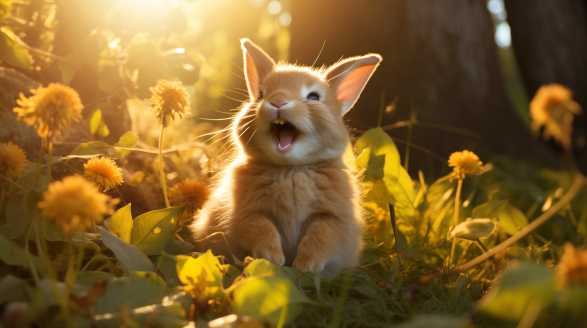
How Often Do Rabbits Poop
Introduction How often do rabbits poop? Let’s find out. Now, I know what you’re thinking – why on earth would anyone want to talk about rabbit poop? But let me tell you, my curious friend, there’s more to these tiny pellets than meets the eye. Imagine this: you find yourself pondering about the frequency at […]

How Much Do Rabbits Cost
Introduction How much do rabbits cost? Let’s find out. From the adorable bunnies to the mischievous adults, we’re going to uncover the real cost of raising these furry bundles of joy. And, it’s going to be a whirlwind ride! Picture this: fluffy bunnies bouncing around your home, their adorable little noses twitching with curiosity. As […]
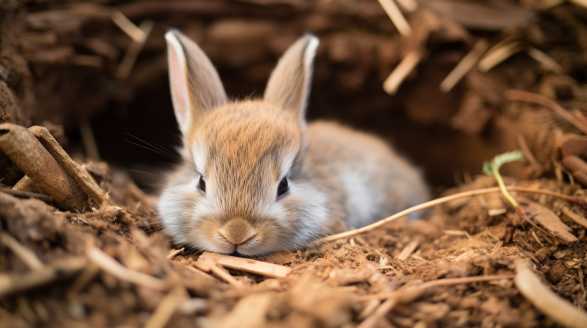
Is Aspen Bedding Safe For Rabbits
Introduction Hey there rabbit owners! Are you looking for the safest and most comfortable bedding option for your fluffy friend? we’ll be diving into the topic of aspen bedding for rabbits and exploring its safety and benefits. As a passionate rabbit owner myself, I understand the importance of choosing the right bedding material for our […]
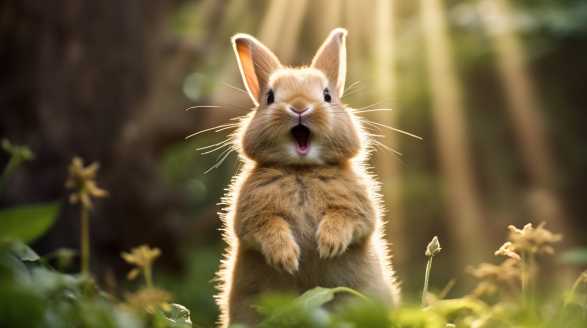
How Many Teeth Do Rabbits Have
How many teeth do rabbits have? Let’s find out. Rabbits, adorable and endearing creatures, have quite the dental arsenal hiding behind their furry exteriors. Contrary to popular belief, these herbivorous mammals possess an impressive set of teeth. With a grand total of 28 teeth, rabbits have incisors, premolars, and molars, all strategically placed to munch […]
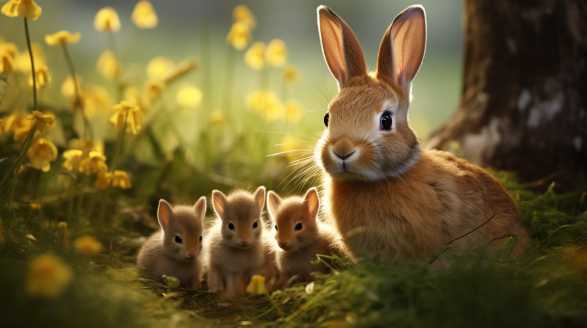
When To Wean Rabbits
Introduction Are you ready to embark on the journey of transitioning your baby to solid food? Well, you’re in the right place! I understand that this can be a confusing and slightly overwhelming phase, but fear not! I’m here to guide you every step of the way. As a parent, one of the most thrilling […]
